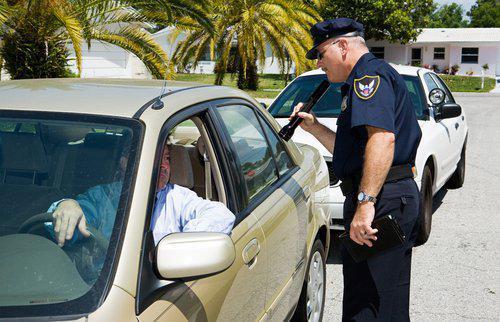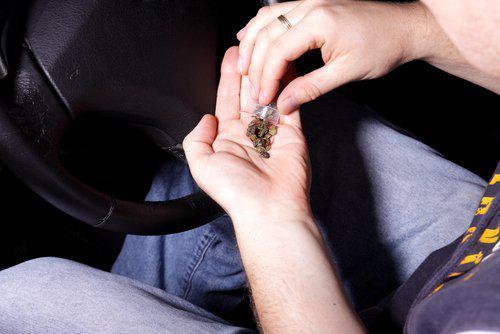Recent Blog Posts
Understanding Computer Crime
 From laptops to smartphones, computers have become a ubiquitous part of nearly everyone's lives. People commonly joke that people have more computing power in their pockets today than NASA did when landing someone on the moon. As much as computers are helpful in everyday life, they have also created a new vulnerability, computer crime. Computer thieves, who are commonly referred to as hackers or crackers, can lift a person's account data out of a computer from across the country. Even massive, well-funded corporations like Sony can be targeted by such attacks. This sort of crime required a new type of law to protect against it. To that end, Congress passed the Computer Fraud and Abuse Act in 1986, and have updated it six times over the years in order to better suit the rapidly changing technological landscape.
From laptops to smartphones, computers have become a ubiquitous part of nearly everyone's lives. People commonly joke that people have more computing power in their pockets today than NASA did when landing someone on the moon. As much as computers are helpful in everyday life, they have also created a new vulnerability, computer crime. Computer thieves, who are commonly referred to as hackers or crackers, can lift a person's account data out of a computer from across the country. Even massive, well-funded corporations like Sony can be targeted by such attacks. This sort of crime required a new type of law to protect against it. To that end, Congress passed the Computer Fraud and Abuse Act in 1986, and have updated it six times over the years in order to better suit the rapidly changing technological landscape.
Aerial Surveillance and Traffic Tickets
 Drivers on Wisconsin roads who hear a plane overhead may want to take a second to check their speedometers. They might find that those planes are Wisconsin State Patrol flights, an aerial surveillance unit that works with officers on the ground to dole out tickets to unsuspecting drivers. The surveillance missions have led to the issuance of thousands of traffic tickets. Of course, there are certain areas that are more likely to see this sort of aerial surveillance, so motorists should be aware of when they are particularly likely to encounter these aerial patrols.
Drivers on Wisconsin roads who hear a plane overhead may want to take a second to check their speedometers. They might find that those planes are Wisconsin State Patrol flights, an aerial surveillance unit that works with officers on the ground to dole out tickets to unsuspecting drivers. The surveillance missions have led to the issuance of thousands of traffic tickets. Of course, there are certain areas that are more likely to see this sort of aerial surveillance, so motorists should be aware of when they are particularly likely to encounter these aerial patrols.
Aerial Surveillance Statistics
The state highway patrol's aircraft surveillance program has been highly effective at helping officers on the ground issue traffic tickets. Last year, officers conducted over 2,600 traffic stops as a result of tips from the aerial surveillance crew, according to a report. These stops resulted in over 1800 speeding tickets, but speeding is not all that aerial surveillance crews watch for. They also check for other traffic violations such as tailgating, and they look for more serious crimes. Aerial surveillance units have made numerous drug and felony arrests as a result of their unique vantage point.
Truth in Politics Laws
 It is not a controversial statement to say that advertisers often stretch the truth, but the law does place limits on what they can say. A company that spins the facts too much may risk a lawsuit because of false advertising and unfair competition. The lawsuit can come from either the FTC or from a competitor. Interestingly, a similar law exists in Wisconsin with regard to politics. Statute 12.05 makes it a crime to “knowingly make . . . a false representation pertaining to a candidate . . . to affect voting at an election.” Yet, these truth in politics laws are often difficult to enforce because of the First Amendment concerns that they raise. Still, a Wisconsin state assembly race may give rise to a criminal case under that statute
It is not a controversial statement to say that advertisers often stretch the truth, but the law does place limits on what they can say. A company that spins the facts too much may risk a lawsuit because of false advertising and unfair competition. The lawsuit can come from either the FTC or from a competitor. Interestingly, a similar law exists in Wisconsin with regard to politics. Statute 12.05 makes it a crime to “knowingly make . . . a false representation pertaining to a candidate . . . to affect voting at an election.” Yet, these truth in politics laws are often difficult to enforce because of the First Amendment concerns that they raise. Still, a Wisconsin state assembly race may give rise to a criminal case under that statute
The State Assembly Race
The Crime of Battery in Wisconsin
 Battery is one of the more common crimes prosecuted is Wisconsin. However, just because it is common does not mean that it is trivial. Whether it started as a bar fight, self-defense, or just a momentary lapse, the crime of battery charge can have serious consequences, if it is not handled properly. Consequently, people should understand how Wisconsin Law defines the different levels of battery, along with the potential defenses that may be available to them, which may range from consent by the other side to acting in self-defense.
Battery is one of the more common crimes prosecuted is Wisconsin. However, just because it is common does not mean that it is trivial. Whether it started as a bar fight, self-defense, or just a momentary lapse, the crime of battery charge can have serious consequences, if it is not handled properly. Consequently, people should understand how Wisconsin Law defines the different levels of battery, along with the potential defenses that may be available to them, which may range from consent by the other side to acting in self-defense.
What Constitutes Battery
Although the crime of battery is often discussed as though it were a single crime, there are actually a variety of levels to it under Wisconsin law. The lowest level of battery is simple battery, a Class A misdemeanor that the law defines as intentionally causing bodily harm to another person. The extra levels of battery increase in severity as the harm and the intent behind it get more serious. For instance, if a person causes great bodily harm, but only intends to cause bodily harm, then the crime gets upgraded to a Class H felony, but if the person intended to cause great bodily harm in addition to actually causing it, then the crime is a Class E felony.
Hazing Law in Wisconsin
 Hazing, bullying done to people in order to initiate them into an organization, was once thought of as a bit of harmless fun that helped people build camaraderie. However, it has since become clear to state governments that hazing can actually have serious consequences, and can even result in the death of students when it gets out of hand. As a result, states, including Wisconsin, have passed laws criminalizing hazing. These laws take very different view of what qualifies as hazing and what the penalties can be. It is important for people in positions of authority to understand the Wisconsin law on hazing and the penalties that it imposes.
Hazing, bullying done to people in order to initiate them into an organization, was once thought of as a bit of harmless fun that helped people build camaraderie. However, it has since become clear to state governments that hazing can actually have serious consequences, and can even result in the death of students when it gets out of hand. As a result, states, including Wisconsin, have passed laws criminalizing hazing. These laws take very different view of what qualifies as hazing and what the penalties can be. It is important for people in positions of authority to understand the Wisconsin law on hazing and the penalties that it imposes.
What Hazing Is
Although people may have an intuitive sense of what hazing is, people should understand the long list of actions that can qualify as hazing under Wisconsin's law. The law prohibits any act that intentionally or recklessly puts a student's physical well-being in danger in order to initiate them into an organization. The law also includes an extensive list of examples such as physical brutality like whipping or beating, forced consumption of substances like food or alcohol, or forced confinement. However, the list is merely a set of examples and the law may apply to more than just that conduct.
A Primer on Securities Fraud
 With an ever-growing number of public financial scandals, white collar criminal prosecutions are becoming a larger and larger part of the federal criminal caseload. Although white collar crime is a broad umbrella that can implicate many different kinds of activity, one of the most common white collar crimes is securities fraud. However, referring to securities fraud as a single crime is somewhat misleading. The statute that covers it actually uses it as an umbrella term for different types of fraud related to financial instruments. Two of the most important types of securities fraud are the misrepresentation of material information related to the security and insider trading.
With an ever-growing number of public financial scandals, white collar criminal prosecutions are becoming a larger and larger part of the federal criminal caseload. Although white collar crime is a broad umbrella that can implicate many different kinds of activity, one of the most common white collar crimes is securities fraud. However, referring to securities fraud as a single crime is somewhat misleading. The statute that covers it actually uses it as an umbrella term for different types of fraud related to financial instruments. Two of the most important types of securities fraud are the misrepresentation of material information related to the security and insider trading.
Material Misrepresentations
One of the most common types of securities fraud is through material misrepresentations. The securities law makes it a federal crime to be dishonest about facts about a company that would be important to investors. Both people inside and outside of a company can run afoul of this law. From within the company, one of the most common ways to do it is through falsified filings. For instance, if a company inflates its earnings, reporting them as being higher than they actually are, then they could be charged with securities fraud, especially if the company later enters bankruptcy despite reporting strong profits.
The Blunt Facts about Drug Charges
 Throughout the United States, each state has enacted laws that make it unlawful to possess, distribute or manufacture illegal drugs. These substances include marijuana, cocaine, heroin, methamphetamines, and various other drugs. Also, an individual could be charged with drug distribution if he or she is engaged in the illegal distribution of prescription drugs, the most common being painkillers or sleeping pills. The punishment for possession is much more lenient than that of distribution or manufacturing. These punishments depend on a variety of factors, such as the type and amount of drug, geographic area and groups targeted for the distribution of illegal drugs. The terms of punishment can range from a couple of years in prison to life imprisonment.
Possession of a small amount of a drug, such as marijuana, is usually only a misdemeanor. However, charges related to drug trafficking, distribution and manufacturing are commonly considered felonies and lead to more serious fines and prison time. If you are found in possession of a substantial amount of drugs, there is a possibility you could be charged with intent to distribute if the police believe you were in a position to sell them to other people. This is also true if you are found with a limited amount of drugs and a significant amount of cash.
If you are facing charges related to drug trafficking, it is important to remember that state and federal laws almost always come into play. Most state laws are modeled after federal laws and there are mandatory minimum punishments depending on the type and amount of drug involved. Although lawmakers passed these harsh laws to deter major drug distributors, petty drug dealers are too often the ones to be prosecuted.
Drug-Related Arrests in Wisconsin
According to the Wisconsin Department of Justice, there were a total of 340,893 arrests across the state in 2012 (See “Arrests in Wisconsin 2012”). Drug arrests accounted for 27,345, and 83 percent of these arrests were related to possession charges. A first-time offense related to the possession of marijuana carries a $1,000 fine and possibility of six months in prison. A list of substances regulated by the state of Wisconsin can be found here and felony classifications can be found here.
Depending on the circumstances of your case, the state or federal prosecutor can determine whether or not you had the intent to sell or manufacture illegal drugs. The typical indicators are amount of drug, type of drug, geographical location, and presence of distribution paraphernalia (baggies, scales, etc).
Let Our Attorneys Defend You in Your Case
The possible punishments, regardless of the drug trafficking charges, are far too serious to consider taking care of on your own. You should contact an experienced Milwaukee criminal defense attorney to help you fight the charges every step of the way.
Throughout the United States, each state has enacted laws that make it unlawful to possess, distribute or manufacture illegal drugs. These substances include marijuana, cocaine, heroin, methamphetamines, and various other drugs. Also, an individual could be charged with drug distribution if he or she is engaged in the illegal distribution of prescription drugs, the most common being painkillers or sleeping pills. The punishment for possession is much more lenient than that of distribution or manufacturing. These punishments depend on a variety of factors, such as the type and amount of drug, geographic area and groups targeted for the distribution of illegal drugs. The terms of punishment can range from a couple of years in prison to life imprisonment.
Possession of a small amount of a drug, such as marijuana, is usually only a misdemeanor. However, charges related to drug trafficking, distribution and manufacturing are commonly considered felonies and lead to more serious fines and prison time. If you are found in possession of a substantial amount of drugs, there is a possibility you could be charged with intent to distribute if the police believe you were in a position to sell them to other people. This is also true if you are found with a limited amount of drugs and a significant amount of cash.
If you are facing charges related to drug trafficking, it is important to remember that state and federal laws almost always come into play. Most state laws are modeled after federal laws and there are mandatory minimum punishments depending on the type and amount of drug involved. Although lawmakers passed these harsh laws to deter major drug distributors, petty drug dealers are too often the ones to be prosecuted.
Drug-Related Arrests in Wisconsin
According to the Wisconsin Department of Justice, there were a total of 340,893 arrests across the state in 2012 (See “Arrests in Wisconsin 2012”). Drug arrests accounted for 27,345, and 83 percent of these arrests were related to possession charges. A first-time offense related to the possession of marijuana carries a $1,000 fine and possibility of six months in prison. A list of substances regulated by the state of Wisconsin can be found here and felony classifications can be found here.
Depending on the circumstances of your case, the state or federal prosecutor can determine whether or not you had the intent to sell or manufacture illegal drugs. The typical indicators are amount of drug, type of drug, geographical location, and presence of distribution paraphernalia (baggies, scales, etc).
Let Our Attorneys Defend You in Your Case
The possible punishments, regardless of the drug trafficking charges, are far too serious to consider taking care of on your own. You should contact an experienced Milwaukee criminal defense attorney to help you fight the charges every step of the way.
Child Pornography Charges in the Digital Age
 In recent years, law enforcement agencies across the United States and in Wisconsin have relentlessly pursued producers, possessors and distributors of child pornography. Individuals caught and charged with the sexual exploitation of children or possession and/or distribution of child pornography could potentially be prosecuted under state or federal laws, or even both.
In recent years, law enforcement agencies across the United States and in Wisconsin have relentlessly pursued producers, possessors and distributors of child pornography. Individuals caught and charged with the sexual exploitation of children or possession and/or distribution of child pornography could potentially be prosecuted under state or federal laws, or even both.
Between 1996 and 2005, the Federal Bureau of Investigation reported that the amount of child pornography and sexual exploitation cases opened by the agency skyrocketed from 114 to 2,402, and arrests related to these charges per year increased from 68 in 1996 to 1,649 in 2005. Within this 10-year period alone, the amount of cases opened and arrests made by the Federal Bureau of Investigation increased over 2,000 percent.
Penalties for Child Pornography
Under federal law, a first time offense of production of child pornography is a felony, which carries a 15-year minimum sentence up to a maximum of 25 years in prison. But a first-time offense of possession of child pornography is a felony and only carries a three-year mandatory minimum, up to a 20-year maximum, while distribution carries a five-year mandatory minimum. A second offense in either one of these categories of charges essentially doubles the maximum possible sentence. In Wisconsin, possession of child pornography is a class D felony, which carries a maximum 25-year sentence, with a fine up to $100,000, or both. The production of child pornography or the sexual exploitation of children is a Class C felony, which carries a maximum 40-year sentence and up to $100,000 fine, or both.
Understanding Your Fourth Amendment Rights
 Legal disputes over the admissibility of evidence seem like they have the potential to be quite dry, but in reality they can make all the difference in the outcome of a case. For instance, if a person is charged with possession of a controlled substance, the prosecution will have a difficult time proving their case if the judge prevents them from actually introducing the drugs to the jury.
In the criminal context, one of the most important rules related to the admissibility of evidence comes from the Fourth Amendment. The Fourth Amendment protects citizens from “unreasonable” searches. Importantly, if a police officer finds evidence as a result of a search that the court considers unreasonable, then the prosecutor cannot use that evidence in the trial as a punishment for violating the defendant's rights.
Police and Warrants
The general rule about whether a search is reasonable is whether it was executed pursuant to a valid warrant. Warrants are legal documents that empower the police to perform a search. The police get warrants by going before the judge, and presenting evidence that there is probable cause to believe that a search will turn up further evidence of criminal activity.
The mere existence of a warrant does not make all searches valid. For instance, warrants are limited to searching specific premises for specific items. If the police exceed the boundaries of the warrant, then the search may be deemed unreasonable. Similarly, warrants are only good for a limited amount of time. Police are not allowed to seek warrants and then store them indefinitely to use as needed. Searches executed under an outdated warrant may also be considered unreasonable.
Exceptions to the Warrant Rule
Importantly, the rule that police need a warrant to perform a search is subject to a variety of exceptions. One of the most important exceptions is for vehicles. It would be impractical to always force police to seek a warrant during a traffic stop, so the law allows police to use their own judgment. If the police believe that there is probable cause to perform a search, then they may search a vehicle over the driver's objections. However, if that search turns up evidence of a crime, the judge at trial will have to determine whether the officer actually had probable cause.
Another important exception to the warrant rule is one of consent. Police officers are allowed to ask for permission to perform searches of people or their property. People are under no obligation to consent to these searches, but if they do consent, they lose the authority to later contest the reasonableness of the search.
The law provides a variety of protections to ensure that people accused of crimes do not have their rights violated. If you are facing criminal charges, and want to learn more about these protections, contact an experienced Milwaukee criminal defense lawyer today.
Legal disputes over the admissibility of evidence seem like they have the potential to be quite dry, but in reality they can make all the difference in the outcome of a case. For instance, if a person is charged with possession of a controlled substance, the prosecution will have a difficult time proving their case if the judge prevents them from actually introducing the drugs to the jury.
In the criminal context, one of the most important rules related to the admissibility of evidence comes from the Fourth Amendment. The Fourth Amendment protects citizens from “unreasonable” searches. Importantly, if a police officer finds evidence as a result of a search that the court considers unreasonable, then the prosecutor cannot use that evidence in the trial as a punishment for violating the defendant's rights.
Police and Warrants
The general rule about whether a search is reasonable is whether it was executed pursuant to a valid warrant. Warrants are legal documents that empower the police to perform a search. The police get warrants by going before the judge, and presenting evidence that there is probable cause to believe that a search will turn up further evidence of criminal activity.
The mere existence of a warrant does not make all searches valid. For instance, warrants are limited to searching specific premises for specific items. If the police exceed the boundaries of the warrant, then the search may be deemed unreasonable. Similarly, warrants are only good for a limited amount of time. Police are not allowed to seek warrants and then store them indefinitely to use as needed. Searches executed under an outdated warrant may also be considered unreasonable.
Exceptions to the Warrant Rule
Importantly, the rule that police need a warrant to perform a search is subject to a variety of exceptions. One of the most important exceptions is for vehicles. It would be impractical to always force police to seek a warrant during a traffic stop, so the law allows police to use their own judgment. If the police believe that there is probable cause to perform a search, then they may search a vehicle over the driver's objections. However, if that search turns up evidence of a crime, the judge at trial will have to determine whether the officer actually had probable cause.
Another important exception to the warrant rule is one of consent. Police officers are allowed to ask for permission to perform searches of people or their property. People are under no obligation to consent to these searches, but if they do consent, they lose the authority to later contest the reasonableness of the search.
The law provides a variety of protections to ensure that people accused of crimes do not have their rights violated. If you are facing criminal charges, and want to learn more about these protections, contact an experienced Milwaukee criminal defense lawyer today.
Companies Developing Marijuana Breathalyzers
 One of the biggest political controversies across the country today is the creeping legalization of marijuana. Many states have legalized marijuana for certain medical uses, and some have even gone so far as to legalize it for recreational use. This spate of legalizations presents a new issue, the likely increase in people driving under the influence of marijuana. In order to deal with this, both companies and universities are attempting to develop and commercialize marijuana breathalyzers for use by police forces. These breathalyzers have the potential to make enforcement of OWI laws more objective and scientific, but there are also some issues with their introduction.
Potential Benefits
The major benefit of these breathalyzers would be their objectivity. Right now, police officers are mainly forced to rely on their judgment to determine if a person is driving while under the influence of marijuana. They have to look for things like bloodshot eyes, failure of field sobriety tests, the smell of marijuana, and the presence of drug paraphernalia. While some of these may be strong indicators of an OWI, a person with bloodshot eyes who fails a field sobriety test could also simply be suffering from fatigue. The only way to be sure is to then bring the person back to the station to test their blood or urine for the presence of marijuana.
These marijuana breathalyzers could change that. They could provide police with a convenient way to test for marijuana, and determine if it was worth bringing the person back to the station for a more thorough test. This could also benefit drivers since it would make it less likely for police to bring people back to the police station based on inaccurate suspicions.
Possible Concerns
However, there is also a good reason to be concerned about these new breathalyzers, particularly in Wisconsin. Wisconsin is known as a “zero tolerance” state for marijuana OWIs. This means that any detectable amount of marijuana in a person's system is enough to justify an OWI conviction. This could make marijuana breathalyzers a serious problem because they could lead to an over-enforcement of OWI laws.
There is a big difference between having a detectable amount of marijuana in a person's system and having their driving impaired by the marijuana. Marijuana can be detectable for days or weeks following the use. This means that a person could come from a state where the use of marijuana is legal, and then be successfully charged with “impaired” driving weeks later. Consequently, the use of marijuana breathalyzers may require a change to Wisconsin's OWI laws.
OWI charges can result in serious penalties, especially for repeat offenders. If you have been charged with an OWI and want to learn about your options, contact a skilled Milwaukee criminal defense attorney today.
One of the biggest political controversies across the country today is the creeping legalization of marijuana. Many states have legalized marijuana for certain medical uses, and some have even gone so far as to legalize it for recreational use. This spate of legalizations presents a new issue, the likely increase in people driving under the influence of marijuana. In order to deal with this, both companies and universities are attempting to develop and commercialize marijuana breathalyzers for use by police forces. These breathalyzers have the potential to make enforcement of OWI laws more objective and scientific, but there are also some issues with their introduction.
Potential Benefits
The major benefit of these breathalyzers would be their objectivity. Right now, police officers are mainly forced to rely on their judgment to determine if a person is driving while under the influence of marijuana. They have to look for things like bloodshot eyes, failure of field sobriety tests, the smell of marijuana, and the presence of drug paraphernalia. While some of these may be strong indicators of an OWI, a person with bloodshot eyes who fails a field sobriety test could also simply be suffering from fatigue. The only way to be sure is to then bring the person back to the station to test their blood or urine for the presence of marijuana.
These marijuana breathalyzers could change that. They could provide police with a convenient way to test for marijuana, and determine if it was worth bringing the person back to the station for a more thorough test. This could also benefit drivers since it would make it less likely for police to bring people back to the police station based on inaccurate suspicions.
Possible Concerns
However, there is also a good reason to be concerned about these new breathalyzers, particularly in Wisconsin. Wisconsin is known as a “zero tolerance” state for marijuana OWIs. This means that any detectable amount of marijuana in a person's system is enough to justify an OWI conviction. This could make marijuana breathalyzers a serious problem because they could lead to an over-enforcement of OWI laws.
There is a big difference between having a detectable amount of marijuana in a person's system and having their driving impaired by the marijuana. Marijuana can be detectable for days or weeks following the use. This means that a person could come from a state where the use of marijuana is legal, and then be successfully charged with “impaired” driving weeks later. Consequently, the use of marijuana breathalyzers may require a change to Wisconsin's OWI laws.
OWI charges can result in serious penalties, especially for repeat offenders. If you have been charged with an OWI and want to learn about your options, contact a skilled Milwaukee criminal defense attorney today.







